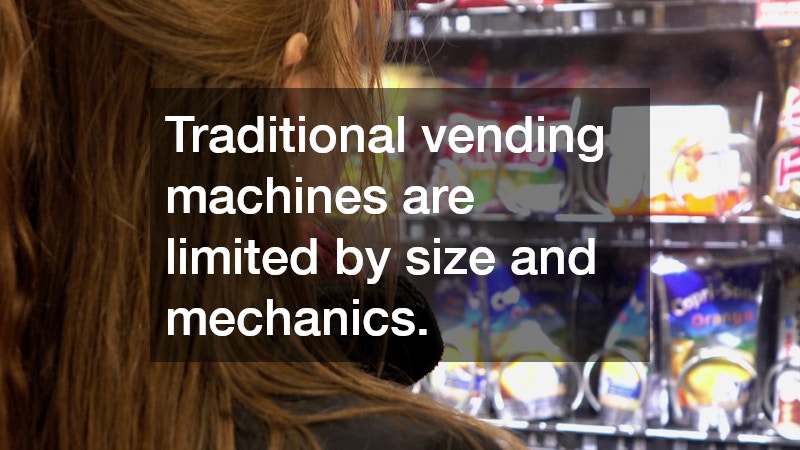In recent years, workplaces have shifted away from traditional vending machines toward more modern, convenient, and employee-friendly refreshment solutions. One of the most significant innovations in this space is the micro market. But while many people have heard the term, fewer understand what a micro market vending company actually provides. These companies offer far more than just snacks on shelves—they deliver a complete, self-service retail experience tailored to a workplace environment.
Below is an in-depth look at what a micro market vending company brings to a facility, and why these services have become so popular in offices, warehouses, schools, hospitals, and other business settings.
1. A Customized On-Site Retail Store
The core offering of a micro market vending company is the creation of a fully customized, self-service convenience store placed directly inside the workplace. Unlike traditional vending machines, micro markets use open shelving, coolers, and freezers that allow employees to pick up and inspect products before purchasing.
Companies design the layout to fit the available space and the needs of the workforce. Some markets fit neatly into a small breakroom; others can occupy a larger dining area and provide hundreds of product options. This flexibility allows businesses to elevate their employee break area without requiring large renovations or expensive equipment purchases.
2. A Wide Product Variety
Traditional vending machines are limited by size and mechanics. Micro markets, however, can offer an extensive range of products, typically including:
-
Fresh sandwiches, salads, and wraps
-
Healthy snacks such as fruit cups, yogurt, nuts, and protein bars
-
Frozen meals and ice cream
-
Specialty drinks like cold brew, kombucha, or energy drinks
-
Everyday convenience items such as pain relievers, hygiene products, and microwavable meals
A micro market vending company sources this wide assortment and rotates products regularly to keep the offerings fresh and appealing. Many companies even tailor selections based on employee feedback or buying trends, creating a more personalized experience.
3. Self-Checkout Kiosks and Modern Payment Options
One major reason micro markets have exploded in popularity is the convenience they offer. Customers can pick up what they want and check out at a self-service kiosk using:
-
Credit or debit cards
-
Mobile payments (Apple Pay, Google Pay, etc.)
-
Market loyalty accounts or stored-value cards
The checkout experience feels more like a small convenience store than a vending machine, eliminating issues like stuck snacks or jammed machines. A micro market vending company installs and maintains these kiosks, ensuring that the technology runs smoothly with minimal downtime.
4. Inventory Management and Replenishment
Behind the scenes, micro market systems use advanced software to track inventory in real time. Every purchase is recorded, so the service provider knows exactly which products need replenishing and when.
This approach ensures:
-
Fewer stockouts
-
Greater product variety
-
Faster replenishment cycles
-
Accurate data on what employees actually enjoy
A micro market vending company monitors this information and schedules restocking visits accordingly. This data-driven approach keeps items fresh and ensures employees always have something appealing to choose from.
5. Fresh Food Handling and Safety Standards
Micro markets often include fresh and perishable items, which require strict handling processes. Companies in this industry manage:
-
Temperature-controlled deliveries
-
Food rotation and expiration checks
-
Compliance with health and safety regulations
-
Secure coolers with automatic temperature monitoring
By following these guidelines, they ensure that every item available is safe, fresh, and ready to eat.
6. Equipment Installation, Maintenance, and Support
A micro market includes more than shelves of snacks—it involves refrigerators, freezers, kiosks, shelving, product displays, and security systems. The vending provider installs all of this equipment and maintains it at no cost to the business (in most cases).
If an issue arises—like a cooler malfunction or a technical error at a self-checkout kiosk—the provider handles repairs quickly. This ensures uninterrupted service and reduces the burden on the workplace’s internal staff.
7. Security and Loss Prevention
Because micro markets are “open,” they use security tools such as:
-
High-resolution surveillance cameras
-
Inventory tracking software
-
Controlled payment systems
These measures help deter theft and maintain accountability without making the environment feel restrictive. A micro market vending company continuously monitors these systems to ensure smooth operation.
8. Employee Wellness and Engagement Benefits
Modern workplaces increasingly focus on wellness, and micro markets align perfectly with that goal. Providers often include:
-
Better-for-you options
-
Nutritional labeling
-
High-protein or low-sugar alternatives
-
Hydration choices beyond sodas
This contributes to healthier habits and supports overall employee satisfaction. Many companies find that their staff appreciates having easy access to fresh food without needing to leave the workplace.
Conclusion
A micro market vending company provides far more than a few shelves of snacks—it delivers a complete, self-service retail experience tailored to the workplace. From product sourcing and inventory management to technology, security, equipment maintenance, and employee wellness, these companies bring a comprehensive solution that improves convenience, productivity, and satisfaction within any business environment.

